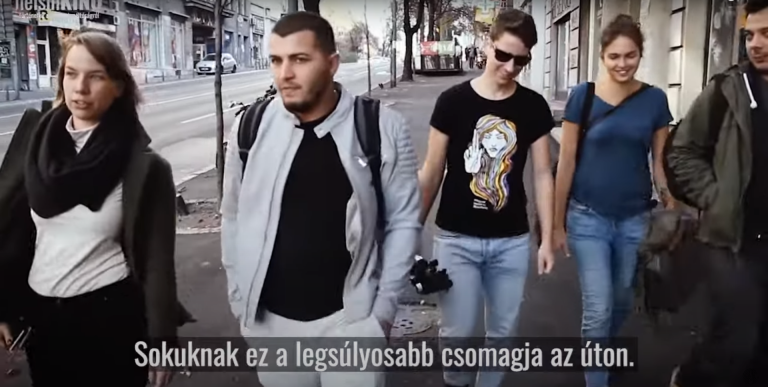The European Court of Human Rights condemns Hungary again, this time for the push-back of an asylum-seeking child
Another client of the Hungarian Helsinki Committee has won a case in Strasbourg. Hungarian police pushed an Iraqi Kurdish boy to Serbia without any investigation. The inhumane Hungarian regulations made this possible – which are in effect even today, despite several international and EU court rulings declaring them to be a severe violation of fundamental rights. The Hungarian state treats children in need of asylum this way.
Translation is available for this content
Váltás magyarra
Karoh, an Iraqi Kurd boy, was 16 years old when he fled his home country in 2017. Hungarian police forced the boy into the Serbian wilderness while they should have placed him in the Children’s Home for Unaccompanied Minors in the town of Fót. The police were aware of his age but did not care. Karoh and his adult companions were forced to leave for Serbia under rules newly introduced at the time, which have since been ruled unlawful by both the European Court of Human Rights (ECtHR) and the Court of Justice of the European Union. To make his story even more bizarre, he originally entered Hungarian territory not from Serbia but from Romania.
Karoh’s fate in Serbia has finally turned out for the better, but it is entirely thanks to the local NGOs that helped him. They also approached the Hungarian Helsinki Committee to try to have the boy’s inhuman and unjust deportation investigated. However, there was no legal possibility to do so in Hungary then, nor is there one now. The refugee child’s complaint thus quickly reached Strasbourg.
After six and a half years, the Court has now ruled that the Hungarian state violated the boy’s rights. Karoh’s judgment in Strasbourg is the sixth in a series of decisions for the Hungarian Helsinki Committee’s clients, which ruled that mass pushbacks without legal remedy and regard to individual circumstances violate the prohibition of collective expulsion. In particular, the Court criticised the fact that the victim of the Hungarian state’s violation in this case was a child in need of help.
“Instead of deporting children without due process, it would be much better for everyone if Hungary were to review asylum applications under a fair asylum system. Because the Hungarian government has been causing suffering and harm for years. We are glad that justice has been restored a little, even if our client ended up receiving protection in another state,” – commented Tamás Fazekas, attorney of the Hungarian Helsinki Committee and Karoh’s legal representative, on the Strasbourg ruling.
Karoh’s life has since been happily settled. He is one of the few people who are recognised as refugees in Serbia. He obtained a driver’s license and learned to cook and barber. He wants to start his own business in the future. Today, as an interpreter, he supports the work of refugee aid organisations in Serbia, without which he would not have managed to get the help he needed.